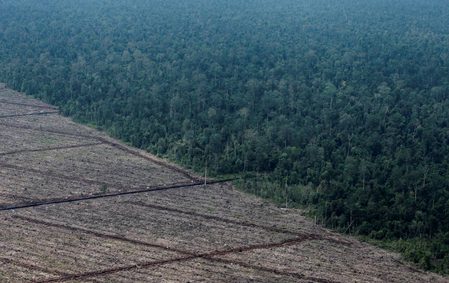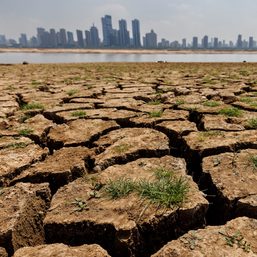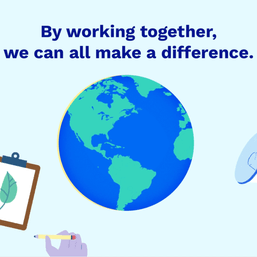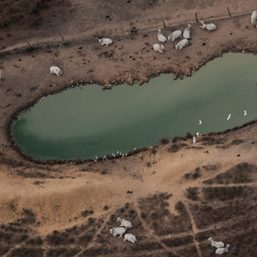SUMMARY
This is AI generated summarization, which may have errors. For context, always refer to the full article.
![[OPINION] While governments move away from fossil fuels, Japan clings on to dirty coal and gas](https://www.rappler.com/tachyon/2021/11/tl-japan-fossil-fuel-sq.jpg)
The recent announcement that 25 institutions and governments including the UK, US, and Canada would end their international public finance for fossil fuels is a massive step towards addressing the climate emergency.
Together the signatories are responsible for at least $18 billion in public finance for oil, gas, and coal every year. And more signatories are coming in as we speak. After a wave of commitments focused on ending coal finance this year, this is the first international political commitment that also addresses oil and gas. This is huge. The International Energy Agency says that to limit global warming to 1.5°C, 2021 needs to mark the end to new investments in not just coal, but also oil and gas supply.
Equally huge is the conspicuous absence of three of the world’s top financiers of overseas fossil fuels from the initiative – Japan, Korea, and China.
Japan, in particular, stands out.
Since 2012, Japan has been the world’s largest financier of overseas fossil fuel projects, according to a recent report by Friends of the Earth US and Oil Change International. Over the last three years, Japan has provided $10.9 billion on average each year for fossil fuel projects.
In a clear example of the “business as usual and blah, blah, blah” that Greta Thunberg excoriated, Prime Minister Kishida touted the use of unproven technologies during his COP remarks that will extend the lifetime of existing thermal power plants. Despite its net-zero by 2050 pledge, Japan has no plans to phase out coal.
By continuing to finance fossil fuels, the Japanese government is clearly moving against global trends on climate and is doubling down on dirty, risky, and outdated technologies.
At the G7 Summit in June, member governments committed to stop public financing for overseas coal projects by the end of this year. Despite this, Japan is still expected to finance the Matarbari 2 coal plant in Bangladesh and the Indramayu coal plant in Indonesia, which the Indonesian government has recently removed from its electricity supply plan.
The Japanese Bank for International Cooperation (JBIC) is planning to finance the notoriously dirty Barossa gas development in Australia. Just days before COP26, the Japanese government approved up to $850 million in financing for the LNG Canada export terminal. The indigenous Wet’suwet’en nation are fighting against this project and the associated pipeline which are proceeding despite the fact that developers never secured their free, prior, and informed consent, in violation of JBIC’s guidelines.
While Prime Minister Kishida stated that Japan would help lead the clean energy transition particularly in Asia, this is doublespeak. Japan’s efforts are blocking the transition. Japan committed $10 billion to expand LNG markets in Asia in April. Public lenders like Japan Bank for International Cooperation have collaborated with Japanese commercial banks and companies such as JERA, Inpex, and others to back gas and power projects in emerging Asian markets. At a time when recognition is growing that there is no room for gas and coal expansion in Asia, Japan has instead moved to reorient its agencies to provide increased support for fossil fuels.
Japan’s relentless promotion of fossil fuels is undermining the transition to renewable energy. In the Philippines, for example, the Department of Energy has supported a rapid buildout of liquefied natural gas (LNG) import infrastructure to replace dwindling domestic gas reserves.
Wind and solar are now the cheapest sources of new power generation capacity in countries that make up two-thirds of the world population. And they are getting cheaper. Renewables will be cheaper across Asia before 20-year LNG contracts signed today expire.
While we celebrate the UK-led initiative, it is critical that pressure builds on Japan to stop dumping billions into financing new fossil fuel projects each year. We can’t solve the climate crisis while Japan is fueling the flames with its support for coal, gas, and oil. – Rappler.com
Ayumi Fukakusa is a climate change and energy campaigner with Friends of the Earth Japan.
Lidy Nacpil is the coordinator of the Asian People’s Movement on Debt and Development.
Add a comment
How does this make you feel?





![[OPINION] Momentum for climate justice](https://www.rappler.com/tachyon/2022/01/TL-Odette-Climate-Justice-January-21-2022-Part-2.jpg?resize=257%2C257&crop=82px%2C0px%2C720px%2C720px)

![[ANALYSIS] After Glasgow: What’s next for climate?](https://www.rappler.com/tachyon/2021/12/cop26.jpg?resize=257%2C257&crop_strategy=attention)






![[Hindi ito Marites] Japan: From enemy to bestie](https://www.rappler.com/tachyon/2024/07/Hindi-ito-Marites-TC-ls-7.jpg?resize=257%2C257&crop=415px%2C0px%2C1080px%2C1080px)


![[Rappler’s Best] America](https://www.rappler.com/tachyon/2024/07/rapplers-best-america.jpg?resize=257%2C257&crop=458px%2C0px%2C1080px%2C1080px)
There are no comments yet. Add your comment to start the conversation.